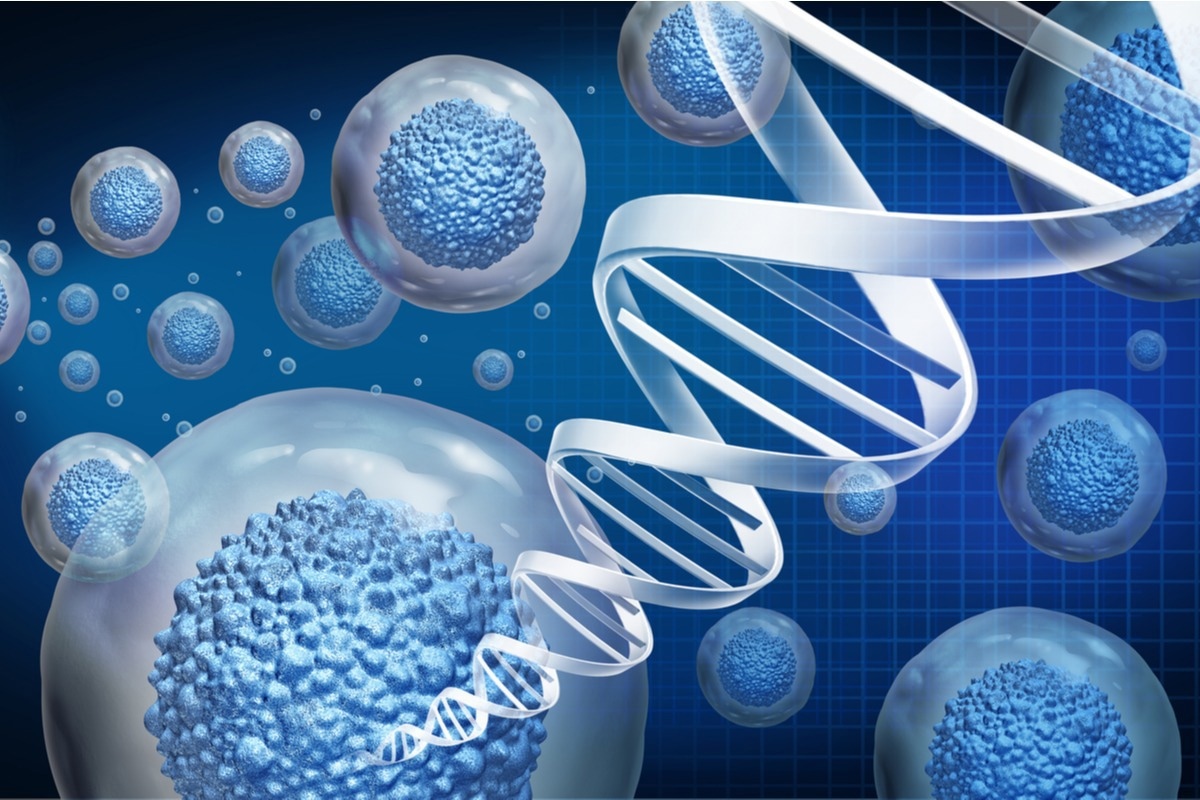What is erectile dysfunction?
What are the common treatments for erectile dysfunction?
Regenerative therapies for erectile dysfunction
Platelet-rich plasma
Low-intensity extracorporeal shockwave therapy
Stem cell therapy
Amniotic fluid matrices
References
Further reading
Erectile dysfunction is a common sexual abnormality in men. The condition is characterized by the inability to get or keep an erection during sexual activity. New regenerative therapies have shown promising outcomes in restoring the structure and function of affected erectile tissues.

Image Credit: dokurose/Shutterstock.com
What is erectile dysfunction?
Erectile dysfunction is a highly prevalent health condition affecting the quality of life of both patients and their partners. About 30% to 65% of men aged between 40 to 80 years in the general population currently suffer from erectile dysfunction. By 2025, the condition is expected to affect as many as 322 million men globally.
The most common symptoms of erectile dysfunction are the inability to get or keep an erection and reduced sexual desire. The condition can be induced by certain cardiovascular, metabolic, and neurological diseases. Excessive alcohol intake, smoking, and certain medicines can also cause erectile dysfunction. In addition to these physical causes, certain psychological factors, including stress, anxiety, depression, and relationship problems, can induce erection problems.
What are the common treatments for erectile dysfunction?
The most common and conventional treatment of erectile dysfunction is the oral administration of phosphodiesterase type 5 inhibitors. This medicine is highly effective in treating mild to moderate erectile dysfunction. A severe condition often needs more invasive treatments, including intracavernous injections and implantation of a penile prosthesis. However, these treatments are very expensive and involve the risks of surgery-related complications and side effects.
Regenerative therapies for erectile dysfunction
Regenerative medicine is considered to be a promising therapeutic approach for erectile dysfunction. Such therapies aim to restore the erectile function by regenerating damaged nerves and muscles, as well as regulating the expressions of growth factors. Regenerative therapies currently being used to treat erectile dysfunction include platelet-rich plasma, amniotic fluid matrices, low-intensity extracorporeal shockwave therapy, and stem cell therapy.

Image Credit: Lightspring/Shutterstock.com
Platelet-rich plasma
Platelet-rich plasma contains 4-fold higher than normal levels of platelets. It is highly enriched with various growth factors, including vascular endothelial growth factor, epidermal growth factor, insulin-like growth factor, platelet-derived growth factor, and fibroblast growth factor. The growth factors and other biologically active components of platelet-rich plasma are known to improve erectile functions through the endothelial nitric oxide synthase (eNOS) pathway. Importantly, studies have established a link between platelet-rich plasma therapy and nerve regeneration.
The phase I human clinical trials have indicated that intracavernous injections of platelet-rich plasma in erectile dysfunction patients do not cause any major adversities, except for penile bruising that has been observed in 40% of patients. In terms of efficacy, the therapy seems to cause moderate improvement in erectile dysfunction.
Low-intensity extracorporeal shockwave therapy
Low-intensity extracorporeal shockwave therapy improves erectile dysfunction by stimulating the formation of new blood vessels (angiogenesis). In this approach, an energy source (electrohydraulic, electromagnetic, or piezoelectric) is used to generate shockwaves that transfer energy to affected tissues to induce mechanical stress directly.
Several animal studies have shown that the therapy improves erectile functions by improving microcirculation, recruiting progenitor cells and stem cells, increasing blood nitric oxide levels via vasodilation, and causing nerve regeneration.
In human clinical trials, the therapy has been found to improve erectile functions in mildly, moderately, or severely affected erectile dysfunction patients who are non-responsive to phosphodiesterase type 5 inhibitors. In contrast, there are clinical trials showing no therapeutic benefit of this intervention.
Stem cell therapy
The self-renewal property and ability to differentiate into a variety of cell types have made stem cells an attractive choice to treat erectile dysfunction. Mesenchymal stem cells derived from the bone marrow or adipose tissue can promote tissue regeneration by releasing growth factors, chemokines, and cytokines. This approach has been considered for treating erectile dysfunction patients.
Treatment of erectile dysfunction patients with umbilical cord blood-derived stem cells and phosphodiesterase type 5 inhibitors have been found to cause a significant improvement in erectile function and morning erection. Similar effects have been observed after combination treatment with adipose tissue-derived stem cells and platelet lysate.
EAU TV: Stem cells shown to restore erection capability in men with erectile dysfunction
A long-term improvement in erectile function has been observed in patients treated with autologous adipose tissue-derived stem cells. A 6-month treatment causes significant improvement in penetrative sexual intercourse in patients even in the absence of any oral medication.
Regarding the route of administration of stem cells, intravenous injection is less invasive and causes less morbidity. However, in most clinical trials, the intracavernous injection has been used to administer stem cells.
Amniotic fluid matrices
Dehydrated human amnion membrane is a rich source of neurotrophic factors, growth factors, cytokines, and anti-inflammatory and anti-fibrotic factors. These membranes are currently used as a novel nerve regeneration strategy to treat erectile dysfunction.
The human clinical trial findings have indicated that treatment with amnion grafts is beneficial for the early recovery of erectile function. However, the treatment does not seem to cause any long-term benefits.
References
• Erectile dysfunction. 2021. Mayo Clinic. Available at: https://www.mayoclinic.org/diseases-conditions/erectile-dysfunction/symptoms-causes/syc-20355776
• Campbell, J.D. (2020). The good, bad, and the ugly of regenerative therapies for erectile dysfunction. Translational Andrology & Urology. https://www.ncbi.nlm.nih.gov/pmc/articles/PMC7108995/
• Ryu, J. (2012). Regenerative technology for future therapy of erectile dysfunction. Translational Andrology & Urology. https://www.ncbi.nlm.nih.gov/pmc/articles/PMC4708247/
• Liu, J.L. (2021). Restorative Therapies for Erectile Dysfunction: Position Statement From the Sexual Medicine Society of North America (SMSNA). Sexual Medicine. https://www.sciencedirect.com/science/article/pii/S2050116121000234
Further Reading
Last Updated: Jun 23, 2022